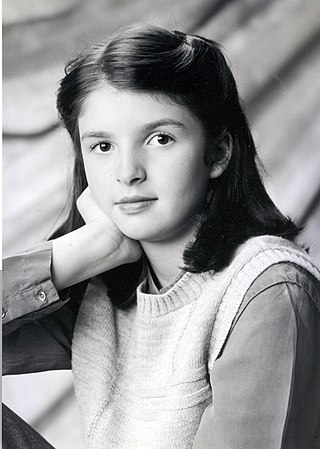Related Research Articles

The Committee for Skeptical Inquiry (CSI), formerly known as the Committee for the Scientific Investigation of Claims of the Paranormal (CSICOP), is a program within the U.S. non-profit organization Center for Inquiry (CFI), which seeks to "promote scientific inquiry, critical investigation, and the use of reason in examining controversial and extraordinary claims." Paul Kurtz proposed the establishment of CSICOP in 1976 as an independent non-profit organization, to counter what he regarded as an uncritical acceptance of, and support for, paranormal claims by both the media and society in general. Its philosophical position is one of scientific skepticism. CSI's fellows have included notable scientists, Nobel laureates, philosophers, psychologists, educators, and authors. It is headquartered in Amherst, New York.

Ayurveda is an alternative medicine system with historical roots in the Indian subcontinent. It is heavily practiced throughout India and Nepal, where as much as 80% of the population report using ayurveda. The theory and practice of ayurveda is pseudoscientific and toxic metals such as lead are used as ingredients in many ayurvedic medicines.

Eleanor Rosalynn Carter was an American writer, activist, and humanitarian who served as the first lady of the United States from 1977 to 1981, as the wife of president Jimmy Carter, the 39th president of the United States. Throughout her decades of public service she was a leading advocate for women's rights and mental health.

The Carter Center is a nongovernmental, nonprofit organization founded in 1982 by former U.S. President Jimmy Carter. He and his wife Rosalynn Carter partnered with Emory University after his defeat in the 1980 United States presidential election. The center is located in a shared building adjacent to the Jimmy Carter Library and Museum on 37 acres (150,000 m2) of parkland, on the site of the razed neighborhood of Copenhill, two miles (3 km) from downtown Atlanta, Georgia. The library and museum are owned and operated by the United States National Archives and Records Administration, while the center is governed by a Board of Trustees, consisting of business leaders, educators, former government officials, and philanthropists.
Maharishi Vedic Approach to Health (MVAH) is a form of alternative medicine founded in the mid-1980s by Maharishi Mahesh Yogi, who developed the Transcendental Meditation technique (TM). Distinct from traditional ayurveda, it emphasizes the role of consciousness, and gives importance to positive emotions. Maharishi Ayur-Veda has been variously characterized as emerging from, and consistently reflecting, the Advaita Vedanta school of Hindu philosophy, representing the entirety of the ayurvedic tradition.

The American Medical Association (AMA) is an American professional association and lobbying group of physicians and medical students. This medical association was founded in 1847 and is headquartered in Chicago, Illinois. Membership was 271,660 in 2022.

Deepak Chopra is an Indian-American author, new age guru, and alternative medicine advocate. A prominent figure in the New Age movement, his books and videos have made him one of the best-known and wealthiest figures in alternative medicine. In the 1990s, Chopra, a physician by education, became a popular proponent of a holistic approach to well-being that includes yoga, meditation, and nutrition, among other new-age therapies.
Natalya "Natasha" Nikolayevna Demkina is a Russian woman who claims to possess a special vision that allows her to look inside human bodies and see organs and tissues, and thereby make medical diagnoses. Since the age of ten, she has performed readings in Russia. She is widely known by the childhood variant of her given name, Natasha. In 2004 she appeared on television shows in the United Kingdom, on the Discovery Channel and in Japan. Since 2004 Demkina has been a full-time student of the Semashko State Stomatological University, Moscow. Since January 2006, Demkina has worked for the Center of Special Diagnostics of the Natalya Demkina (TSSD), whose stated purpose is to diagnose and treat illness in cooperation with "experts possessing unusual abilities, folk healers and professionals of traditional medicine". Many experts are skeptical of her claims.
Peter G. Bourne is a physician, anthropologist, author and international civil servant with experience in several senior government positions. He is currently a visiting senior research fellow at Green Templeton College, Oxford, vice-chancellor emeritus at St. George's University in Grenada and chair of the Medical Education Cooperation with Cuba (MEDICC). He is also a distinguished fellow of the Rothermere American Institute at the University of Oxford.

Emily Rosa is the youngest person to have a research paper published in a peer reviewed medical journal. At age nine Rosa conceived and executed a scientific study of therapeutic touch which was published in the Journal of the American Medical Association in 1998. She graduated from the University of Colorado at Denver in 2009 with a major in psychology. Her parents, Larry Sarner and Linda Rosa, are leaders of the advocacy group Advocates for Children in Therapy.
George D. Lundberg is an American board-certified pathologist and writer.

Steven Paul Novella is an American clinical neurologist and associate professor at Yale University School of Medicine. Novella is best known for his involvement in the skeptical movement as a host of The Skeptics' Guide to the Universe podcast and as the president of the New England Skeptical Society. He is a fellow of the Committee for Skeptical Inquiry (CSI).

Aaron Glantz is an American journalist. He has reported on the opioid epidemic, the quality of care for U.S. military veterans, and the FBI's international war crimes office.
Tom Davis is an American journalist and academic on mental health issues.

Bill Lichtenstein is an American print and broadcast journalist and documentary producer, president of the media production company, Lichtenstein Creative Media, Incorporated.
Nancy Lonsdorf is an American author and medical doctor who practices Maharishi Ayurveda. She received her training at Johns Hopkins School of Medicine and studied Ayurveda in Europe and India, and is the author of several books on the subject.

Paul Radu is an investigative journalist from Romania. He is the co-founder of the Organized Crime and Corruption Reporting Project, for which he and co-founder Drew Sullivan received the Special Award by the European Press Prize. He is also one of the cofounders of the Romanian Center for Investigative Journalism.
John Janeway Conger was an American psychologist and a past president of the American Psychological Association (APA). He was the dean of the University of Colorado School of Medicine, and he advised five U.S. presidents on psychology-related matters.

Lynne Lamberg is an American freelance science journalist, writer and editor. In addition to books on sleep, dreams, and biological rhythms, she has written hundreds of articles on mental and physical health for medical professionals and the general public.
References
- 1 2 "Rosalynn Carter Fellowship" . Retrieved March 20, 2011.
- 1 2 "John P. McGovern Award". Archived from the original on October 21, 2013. Retrieved November 10, 2013.
- 1 2 "Balles Prize". CSICOP. June 14, 2013. Retrieved November 10, 2013.
- ↑ "(CSI Author)Andrew Skolnick" . Retrieved November 12, 2013.
- ↑ Skolnick, A. A. (1998). "Prison Deaths Spotlight How Boards Handle Impaired, Disciplined Physicians". JAMA. 280 (16): 1387–1390. doi:10.1001/jama.280.16.1387. PMID 9800985.
- ↑ Allen, W.; Bell, K. (September 27, 1998), "Death, neglect and the bottom line.", St. Louis Post-Dispatch, pp. G1-3
- ↑ Skolnick, A.; Bell, K. (September 27, 1998), "Prisoner, doctor who treated him, both had drug arrests.", St. Louis Post-Dispatch
- ↑ Skolnick, A. (September 27, 1998), "Two key posts in Alabama were filled by doctors with checkered histories.", St. Louis Post-Dispatch
- ↑ Skolnick, A. (September 27, 1998), "Physicians with troubled pasts have found work behind bars.", St. Louis Post-Dispatch
- ↑ "Goldsmith Prizes Awarded at KSG", The Harvard University Gazette, March 18, 1999
- ↑ Skolnick, Andrew (May 2005). "Natasha Demkina: The Girl with the Normal Eyes". Skeptical Inquirer . Retrieved May 22, 2012.
- ↑ "CSICOP's 1992 Awards". Skeptical Inquirer. 17 (3): 236. 1993.
- ↑ "Sample Web Work". Archived from the original on March 4, 2011. Retrieved November 16, 2013.
{{cite web}}: CS1 maint: unfit URL (link) - ↑ Skolnick, Andrew A. (1991). "Maharishi Ayur-Veda: Guru's Marketing Scheme Promises the World Eternal 'Perfect Health'". JAMA. 266 (13): 1741–1750. doi:10.1001/jama.1991.03470130017003. PMID 1817475.
- ↑ The Lancaster Foundation, Inc., The American Association for Ayur-Vedic Medicine, Inc. vs. Andrew A. Skolnick, George D. Lundberg, M.D.; United States District Court for the Northern District of Illinois, Eastern Division, No. 82 C 4175; Judge Charles P. Kocoras
- ↑ Lancaster Foundation v Skolnick 21 Media Law Reporter, 1021 (ND Ill 1992)
- ↑ McLain, Deckle, "A New Kind of Gag Order; Fortunately the Appeals Courts Don't Like Them", Communications and the Law 18 Com &Law 43 (1996)
- ↑ Current Developments in Media Libel and Invasion of Privacy Law, Libel Defense Resource Center Vol 11 p 558 (1994)
- ↑ Communications Law, Vol 2 (1994), Practicing Law Institute p 497
- ↑ Hylton, Wil. "Sick on the Inside: Correctional HMOs and the coming prison plague". Harper's Magazine. Retrieved March 20, 2011.
- ↑ Miner, Michael (November 26, 1998). "AMA Fires a Loose Cannon; Psst—Wanna Buy a Wire Service?". Chicago Reader. Retrieved November 12, 2013.
- ↑ "Honors Abound for Mental Health Fellows" (PDF), The Carter Center News, p. 5, January–June 1999
- ↑ "SKOLNICK v. CORRECTIONAL MEDICAL SERVICES, INC" . Retrieved November 12, 2013.